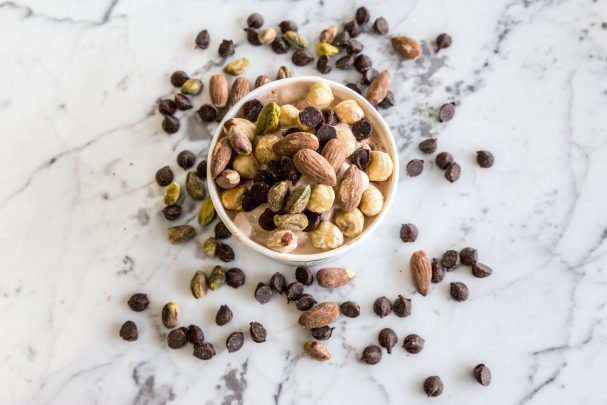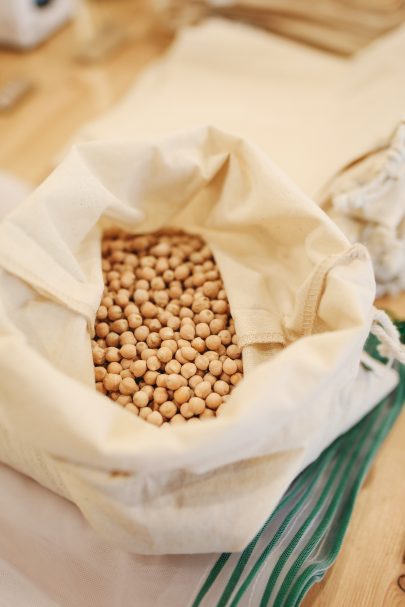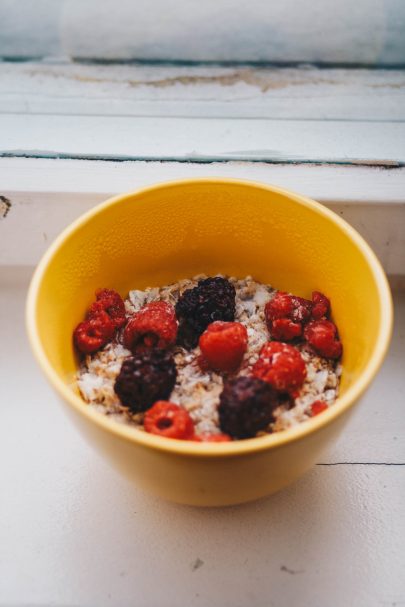We’ve all heard that you should include one portion of protein in every meal, but how do pack enough protein in your diet, specifically? Whether you’re vegetarian, vegan, or perhaps just tired of the go-to chicken breast, there are several ways to mix it up and ensure you’re still getting the protein you need.
First, we’ll get into what protein is and why your body needs it, then we’ll share 5 ways to increase protein in your diet:
The power of protein
Known as the body’s building block, protein is composed of amino acids which are the basic components needed for tissue growth and repair in the body. Whether you’re an athlete aiming to enhance performance or an individual striving for a healthy lifestyle, protein is essential for the following reasons:
ALSO SEE: The immunity superstar on our winter wellness radar is zinc!

Pexels
Muscle development and recovery
Protein is crucial for muscle growth and repair. It helps to repair muscle fibers damaged during exercise and aids in the synthesis of new muscle tissue. Consuming an adequate amount of protein can enhance muscle strength, improve exercise recovery, and promote overall fitness.
Weight management
Including protein in your meals can aid in weight management. Protein has a high satiety factor, which means it keeps you feeling full and satisfied for longer periods. This helps reduce cravings and the likelihood of overeating, making it an excellent choice for those seeking weight loss or weight maintenance.
Metabolic function
Protein plays a significant role in various metabolic processes within the body. It helps to regulate hormone production, maintain fluid balance, support immune function, and promote optimal enzymatic activity. A protein-rich diet can assist in stabilising blood sugar levels and increasing overall energy expenditure.
ALSO SEE: The secret to keep your blood sugar from spiking: apple cider vinegar!
Tissue repair and recovery
Protein is vital for the repair and growth of tissues throughout the body. It supports wound healing, strengthens the immune system, and assists in the production of antibodies, enzymes, and other essential molecules required for cellular function.
Up the ante: 5 ways to increase protein in your diet
The protein you eat may be enough to prevent deficiency, but getting more protein in your diet won’t hurt. Here’s how:
Lean protein sources
Add lean protein sources into your meals such as chicken breast, turkey, fish, lean cuts of beef, tofu, legumes, and low-fat dairy products.
If you don’t want the plain-old chicken breast, opt for a cold meat version. If you’re vegetarian or vegan, there’s nothing more delicious than frying up some tofu with veggies and a bit of soy sauce. Delicious!

Snack on protein-rich foods
Opt for protein-packed snacks like Greek yoghurt, cottage cheese as a dipping sauce for other great sources of protein like hard-boiled eggs or wholegrain / ancient grain Provita crackers. You can also snack on protein bars (we love Grenade bars) or handfuls of nuts and seeds. Roasted & salted pumpkin seeds with raisins are a hit!

Vegetarian or vegan? No problem
If you follow a vegetarian or vegan lifestyle, you can still meet your protein needs by including plant-based sources like quinoa, lentils, chickpeas, edamame, tempeh, and tofu. Incorporate a variety of these sources to ensure a complete amino acid profile. Think quinoa and lentil chips, chickpea salads, edamame and soy snacks, and tofu stir fries.

Plan protein-rich breakfasts
It’s not just a myth, it’s actually really important to start your day with a protein-rich breakfast! This keeps you fuller for longer and keeps your energy levels high. Include foods like eggs, Greek yoghurt, protein smoothies or whole-grain toast with nut butter. You’ll finish your meal feeling satiated and energised.
If boiled eggs aren’t your bestie, go for a delicious skin-boosting smoothie, or a slice of wholegrain cranberry toast with macadamia nut butter and a drizzle of honey, or topped with banana. Yum!

ALSO SEE: Simplify your life with the power of meal planning
Protein supplementation
In some cases, meeting protein requirements solely through whole foods can be challenging. Protein supplements like whey protein, casein protein, or plant-based protein powders can be beneficial. However, consult a healthcare professional or nutritionist to determine the right supplement for you.
By prioritising your protein intake, you can optimise your overall health. Remember, small changes to your dietary habits can lead to significant long-term benefits.
ALSO SEE:
Feature Image: Pexels

